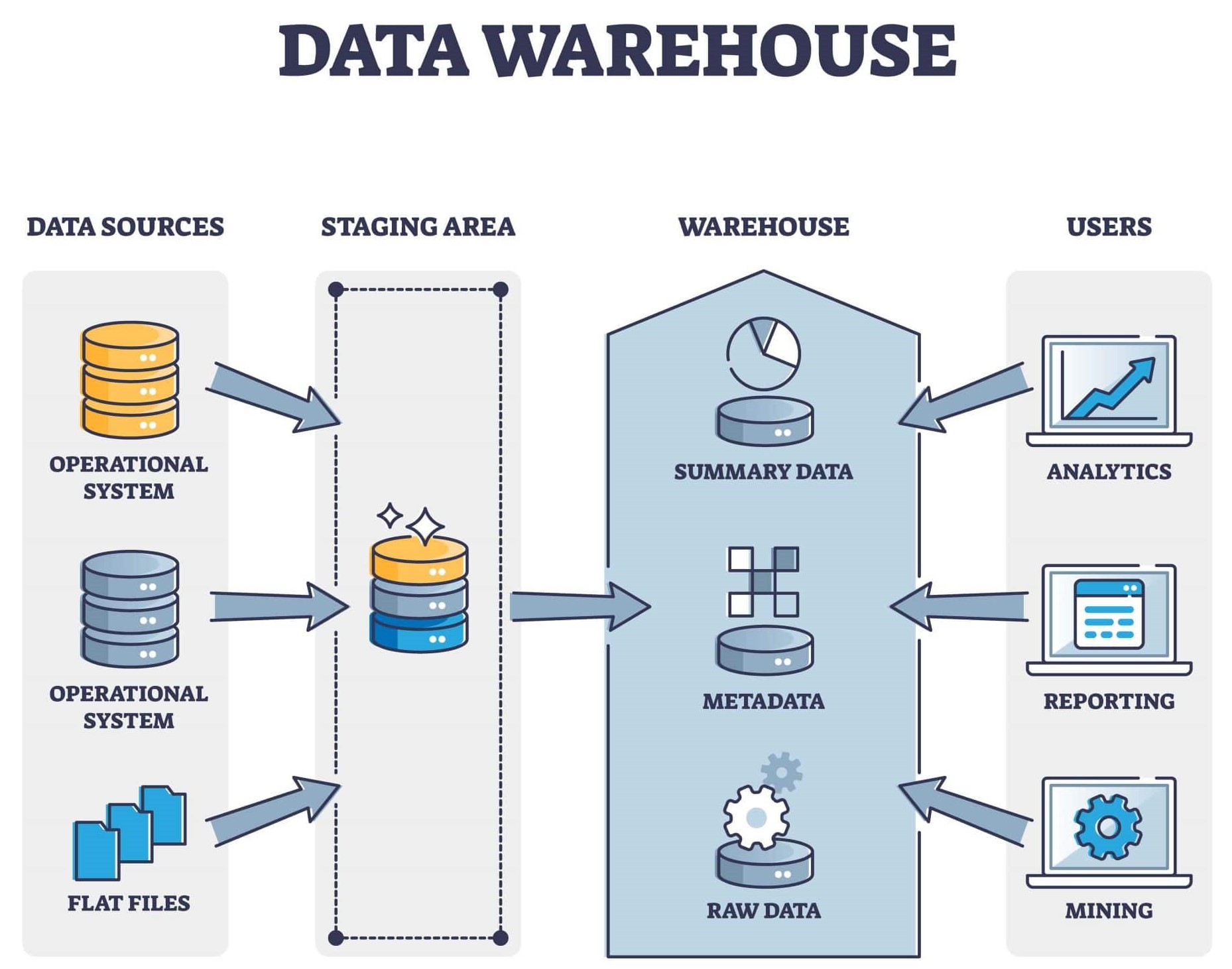

A data warehouse is much like an actual warehouse, the kind where they organize all your amazon purchases. Both warehouses organize and label products, the only difference is a data warehouse organizes and labels boring information about your business into computer data. A data warehouse is essentially the bible for your company that contains a vast range of sources to guide management decisions. Data warehouses are used primarily for combining data for a single source of truth to make operating and tracking easier, hence the bible. A data warehouse is designed to enable and support business intelligence activity, especially analytics. All the information that comes from a data warehouse is gathered in one place that is open to a single set of analytic tools.
In 2022 the market for data warehouses increased by 20.62%, and it is projected that by 2026, the data warehouse market is expected to reach $10.42 billion with an US. annual growth rate of 22.56%. That is a lot of numbers, and they tell us that data warehouses are the future meaning that investing in a data warehouse is a good idea now and in the future. There is a lot that goes into data warehouse so let’s go through some things you should now about data warehouse.
The first thing you need to know is that there is a difference between a database and a data warehouse. It is easy to confuse the two and even use the terms interchangeably, but they are different. A database is designed to capture and record data and has a flexible schema which is just a fancy way of describing how the data is organized. A data warehouse is designed for analytical processing to store current historical data and has a rigid schema. The key differences between a database and a data warehouse are the fact that a database is primarily used for transactional data, while a data warehouse is used for analytics and reporting within your organization.
A data warehouse is easier to navigate because the data is all summarized and processed faster than data in a database. Database analytics are more detailed than data warehouse analytics. This actually turns out to be a disadvantage because database analytics make it difficult to find what you are looking for. Data warehouses are simple to ensure that the data is quick and easily accessible. So, the moral of the story is that a data warehouse is usually better than a database because it can help you do more on a day to basis within your company. It is sort of like the difference A data warehouse is much like an actual warehouse, the kind where they organize all your amazon purchases. Both warehouses organize and label products, the only difference is a data warehouse organizes and labels boring information about your business into computer data. A data warehouse is essentially the bible for your company that contains a vast range of sources to guide management decisions. Data warehouses are used primarily for combining data for a single source of truth to make operating and tracking easier, hence the bible. A data warehouse is designed to enable and support business intelligence activity, especially analytics. All the information that comes from a data warehouse is gathered in one place that is open to a single set of analytic tools. between buying a fully loaded pick-up truck as opposed to the standard pick-up truck that will get the job done, but does not have as many luxuries and conveniences.
Now that you understand the core functions of a data warehouse let’s discuss the benefits. There are numerous benefits to constructing and maintaining a data warehouse, but by far the most significant is the fact that a data warehouse provides historical insight on the data itself. A data warehouse provides visibility into inventory, sales, and billing even down to the company, region, city, and person that are relevant to the day-to-day operation of your company. We asked a couple of our clients about how there data warehouse impacted their business. Jim Bennett, owner and founder of NOW CFO, explained that his data warehouse “creates a mountain of visibility for me that I can get to in a huge hurry.”
With a data warehouse you can have access to key data and can get an overview understanding of where your company is at. The data warehouse does not take away the fine details of your data but allows you to see the basics so you can focus your energy on increasing profit margins instead of navigating an endless maze of computer systems. In addition, data warehouses bring organization to your data by transforming it from numerous sources and types of data into a common format and accelerating access to the data. The warehouse will capture, process, integrate, summarize, and even restrict data if necessary.
A data warehouse can give you a better grasp on your company’s standing, and you can spend more time expanding your business and less time jumping through hoops and solving problems. Contact C-Level Strategy today to talk about building your data warehouse.


